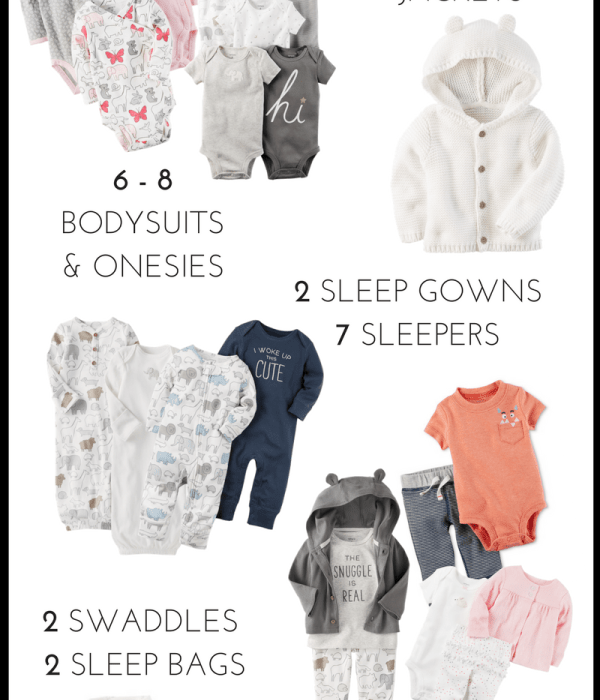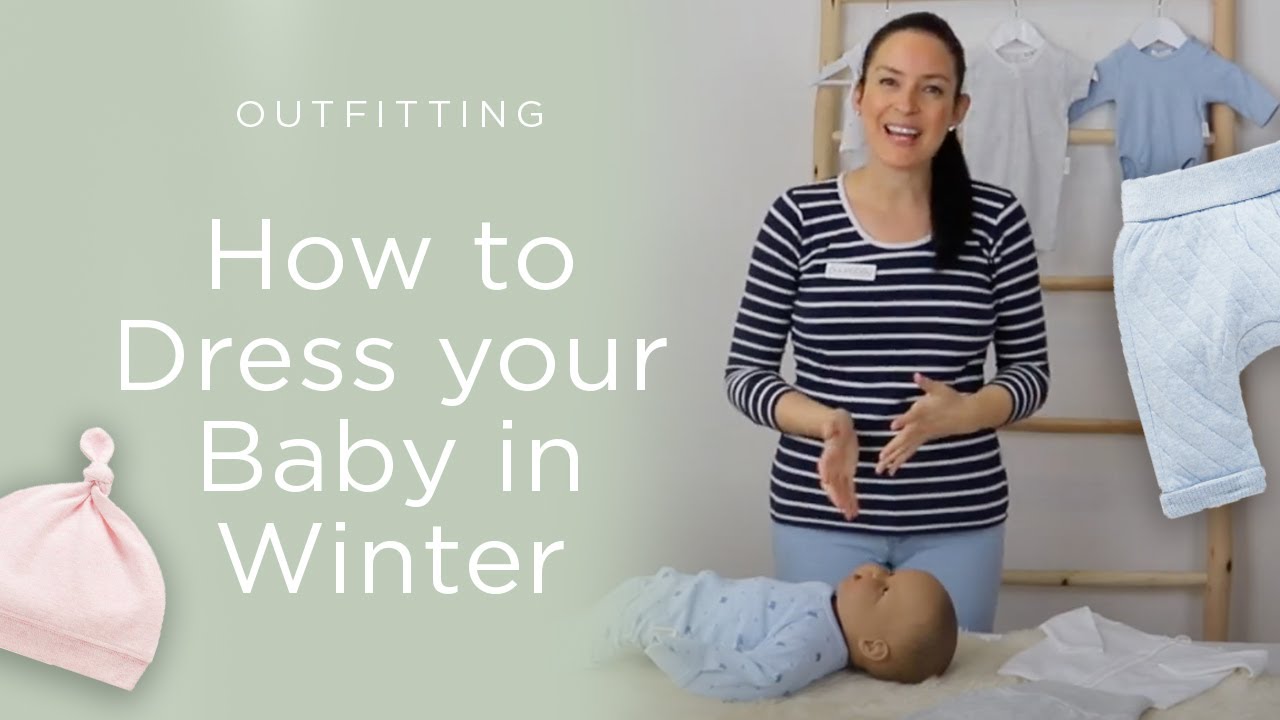Welcoming a newborn into your life brings immense joy and responsibilities. Ensuring your baby’s comfort during sleep is crucial.
That’s where newborn sleepwear essentials come in. Choosing the right sleepwear for your baby can be a daunting task. Newborns have delicate skin and unique needs. The right sleepwear can help them sleep better and stay comfortable. In this blog post, we’ll explore the must-have items for your newborn’s sleepwear.
From soft fabrics to safe designs, we’ll cover everything you need to know. Ready to give your baby the best night’s sleep? Let’s dive into the essentials that will make bedtime a breeze for both you and your little one.
Choosing The Right Fabric
Choosing the right fabric for your newborn’s sleepwear is crucial. It ensures your baby’s comfort and safety throughout the night. Babies have sensitive skin and need soft, breathable materials. This section explores key fabrics that are best for newborn sleepwear.
Organic Cotton Benefits
Organic cotton is a top choice for newborn sleepwear. It is free from harmful chemicals. This makes it gentle on your baby’s skin. Organic cotton is also very soft. It provides a cozy and comfortable feel. This fabric is durable and can withstand many washes. It is also an eco-friendly option. Organic cotton farming uses less water and no pesticides.
Breathable Materials
Breathable materials are essential for newborn sleepwear. They help regulate your baby’s body temperature. Cotton and bamboo are great examples. These fabrics allow air to circulate, preventing overheating. Your baby stays cool and comfortable all night. Breathable fabrics also reduce the risk of skin irritations. They wick moisture away from the skin, keeping your baby dry.
Sleepwear Safety Tips
Ensuring your newborn’s sleepwear is safe is crucial for their well-being. Proper sleepwear can help your baby sleep soundly and safely. Here are some essential tips to keep in mind.
Avoiding Loose Buttons
Loose buttons can be a choking hazard for newborns. Always choose sleepwear without buttons or with securely attached ones. Check them regularly to ensure they remain tight. Avoid outfits with decorations that can come off easily.
Fire-resistant Fabrics
Fire-resistant fabrics are crucial for your baby’s safety. These fabrics reduce the risk of burn injuries. Look for sleepwear labeled as fire-resistant. Ensure they fit snugly to avoid catching fire easily. Avoid loose clothing, which can be more flammable.
Swaddling Techniques
Swaddling is an age-old technique to soothe newborns and ensure they sleep soundly. Wrapping your baby in a snug blanket can mimic the warmth and security of the womb. It reduces the baby’s startle reflex and promotes longer sleep. Let’s explore two popular swaddling methods: Traditional Swaddles and Swaddle Sacks.
Traditional Swaddles
Traditional swaddling involves using a soft, square blanket. This method requires a bit of practice but offers a custom fit for your baby. Follow these steps for a perfect swaddle:
- Lay the blanket flat in a diamond shape.
- Fold the top corner down about six inches.
- Place your baby on the blanket, shoulders aligned with the fold.
- Bring the left corner over the baby and tuck it under their right side.
- Fold the bottom corner up over the baby’s feet.
- Wrap the right corner around the baby and tuck it under their left side.
Traditional swaddling allows for adjustments based on your baby’s comfort. Ensure the swaddle is snug but not too tight. Always leave room for hip movement to promote healthy development.
Swaddle Sacks
Swaddle sacks are modern, user-friendly alternatives to traditional swaddling. They come with pre-sewn sections and Velcro or zipper closures, making them easier to use. Here are some advantages:
- Quick and easy to put on and take off.
- Consistent snug fit without the risk of unwrapping.
- Some models offer adjustable features for growing babies.
- Available in various materials for different seasons.
Using a swaddle sack is straightforward:
- Lay the swaddle sack flat and unzip or unfasten it.
- Place your baby on their back inside the sack.
- Align their shoulders with the top of the sack.
- Secure the Velcro or zipper closures snugly around your baby.
Swaddle sacks minimize the risk of improper swaddling, offering peace of mind for new parents. They provide a safe, comfortable sleep environment for your baby.

Credit: www.facebook.com
Footed Pajamas
Footed Pajamas are a popular choice for newborn sleepwear. They offer a blend of comfort and functionality that parents love. These one-piece outfits cover the baby from head to toe, keeping them warm and cozy. Let’s explore the benefits of footed pajamas under two important aspects: warmth and comfort, and easy diaper access.
Warmth And Comfort
Footed pajamas are designed to provide optimal warmth. They cover the entire body, including the feet. This ensures that your baby stays warm throughout the night. Footed pajamas are made from soft materials like cotton or fleece, which are gentle on a baby’s skin.
Here are some features that enhance their warmth and comfort:
- Enclosed feet to keep tiny toes warm
- Long sleeves for full arm coverage
- Snug fit to retain body heat
These features make footed pajamas an essential part of any newborn’s sleepwear collection.
Easy Diaper Access
Changing diapers can be a frequent task for new parents. Footed pajamas make this easier with their convenient designs. Many footed pajamas come with zippers or snap buttons that allow for quick and easy diaper changes.
Here are some common designs:
| Design | Benefit |
|---|---|
| Front zipper | Quick access to the diaper area |
| Snap buttons | Easy to open and close |
These features save time and ensure the baby remains comfortable during diaper changes. Footed pajamas are not only practical but also help keep your baby happy and warm.
Sleep Sacks
Sleep sacks are a must-have for newborn sleepwear. These wearable blankets ensure your baby stays warm and secure throughout the night. Unlike loose blankets, sleep sacks reduce the risk of suffocation and provide a cozy environment for your little one.
Choosing The Right Size
Picking the correct size for a sleep sack is crucial. A well-fitting sleep sack should not be too tight or too loose. It should allow enough room for your baby’s legs to move freely. Check the manufacturer’s size chart before purchasing. This will help you select the appropriate size based on your baby’s weight and length.
Seasonal Variations
Different seasons require different sleep sack materials. For warmer months, choose lightweight, breathable fabrics like cotton or muslin. These materials help keep your baby cool. For colder months, opt for thicker, warmer fabrics like fleece or wool. These materials provide extra warmth and comfort.
Always consider the room temperature while selecting a sleep sack. This ensures your baby stays comfortable and avoids overheating or getting too cold.
Temperature Control
Ensuring your newborn’s comfort during sleep is essential for their well-being. One crucial aspect is temperature control. Babies cannot regulate their body temperature as well as adults. This makes it important to create a sleep environment that is neither too hot nor too cold. Proper temperature control helps keep your baby comfortable and safe.
Layering Techniques
Layering is a smart way to manage your baby’s temperature. Start with a soft, breathable onesie. Add layers based on the room temperature. Use a lightweight blanket or sleep sack for cooler nights. Avoid heavy blankets as they can cause overheating. Check your baby’s neck and chest to ensure they are not too warm or cold.
Room Thermometers
Using a room thermometer can help maintain the right sleep environment. Place it near your baby’s crib for an accurate reading. Aim for a room temperature between 68 and 72 degrees Fahrenheit. Adjust clothing and blankets based on the thermometer’s reading. This helps in keeping the sleep environment consistent and comfortable.
Nightgowns
Newborn nightgowns are essential for a comfortable sleep. They provide ease of use and versatility. They are a must-have for every new parent.
Ease Of Use
Nightgowns are easy to put on and take off. They are perfect for quick diaper changes. The open bottom design allows for hassle-free access. No need for snaps or zippers. This saves time and reduces stress during nighttime changes. Parents appreciate this convenience.
Versatility
Nightgowns can be used in various ways. They are suitable for both day and night. They can be paired with leggings or pants. This provides extra warmth when needed. Nightgowns can also grow with your baby. Many designs have adjustable features. This means they can fit longer as your baby grows. Nightgowns are a versatile addition to any newborn wardrobe.

Credit: www.cutiepiebaby.com
Onesies
Onesies are a must-have for every newborn’s wardrobe. These all-in-one garments provide comfort and ease of use. They simplify diaper changes and ensure your baby stays warm and cozy. Onesies come in various styles and materials. This makes them perfect for everyday wear. Let’s explore some essential aspects of newborn onesies.
Everyday Comfort
Comfort is key for newborns. Soft, breathable fabrics are ideal. Cotton onesies are perfect for delicate skin. They offer a gentle touch and are easy to clean. Snaps at the bottom allow quick diaper changes. This feature saves time and reduces fuss. Ensure the onesies have flat seams. This prevents irritation and keeps your baby happy.
Mix And Match
Onesies come in various colors and patterns. This allows for easy mixing and matching. Neutral tones go well with any outfit. Bright colors and fun prints add a touch of joy. Layer onesies with pants, shorts, or skirts. This makes dressing your baby simple and versatile. Stock up on a variety of onesies. This ensures you have options for every occasion.
Blankets And Quilts
Choosing the right blankets and quilts for your newborn is crucial. They ensure your baby stays warm and comfortable. The perfect blanket or quilt can help your baby sleep better. It also gives parents peace of mind. But which ones are the best? Let’s explore some key aspects.
Breathable Options
Breathable blankets are a top choice for newborns. They allow air to circulate. This helps prevent overheating. Look for materials like cotton or bamboo. These fabrics are soft and safe. They also help regulate your baby’s body temperature. Remember, a comfortable baby sleeps better.
Proper Usage
Using blankets and quilts correctly is important. Always place the blanket below the baby’s shoulders. Tuck the edges securely under the crib mattress. This prevents the blanket from covering the baby’s face. Avoid using heavy quilts with newborns. Light layers are safer and more comfortable. Ensure the baby’s feet touch the crib’s bottom. This helps prevent the baby from slipping down under the blanket.
Sleepwear For Different Seasons
Newborn sleepwear essentials change with the seasons. Ensuring your baby is dressed appropriately for the weather is crucial for their comfort and safety. In this section, we’ll explore the best sleepwear options for both winter and summer.
Winter Essentials
Winter can be quite harsh on a newborn’s delicate skin. It’s essential to choose warm and cozy sleepwear to keep your baby comfortable.
A few winter essentials include:
- Fleece sleepers: Soft and warm, ideal for cold nights.
- Long-sleeve onesies: Provide extra warmth and can be layered.
- Footed pajamas: Keep baby’s feet warm without the need for socks.
- Sleep sacks: Add an extra layer of warmth without the risk of loose blankets.
Consider using a humidifier in the baby’s room to maintain moisture in the air. Dry winter air can affect your baby’s skin and breathing.
Summer Must-haves
Summer requires lighter sleepwear to prevent overheating. Breathable and comfortable materials are key.
Some summer must-haves include:
- Cotton onesies: Lightweight and breathable, perfect for warm nights.
- Short-sleeve bodysuits: Keep baby cool while providing some coverage.
- Sleeveless rompers: Great for hot weather, allowing maximum airflow.
- Light sleep sacks: Made of cotton or muslin, providing a light cover.
Ensure the baby’s room is well-ventilated. A fan or air conditioner can help maintain a comfortable temperature.
Choosing the right sleepwear for each season ensures your baby stays comfortable and sleeps well throughout the year.
Accessories For Better Sleep
Ensuring a newborn sleeps well can be challenging. Accessories for better sleep can make a difference. These items help keep your baby comfortable and warm. Let’s explore some essentials like hats, mittens, socks, and booties.
Hats And Mittens
Newborns lose heat quickly, especially from their heads. A soft, cotton hat can help maintain body temperature. Choose hats that fit snugly but not too tight. Ensure they are breathable to avoid overheating.
Mittens are also important. They keep tiny hands warm and prevent scratches. Babies often have sharp nails. Mittens protect their delicate skin. Opt for mittens with gentle elastic bands. This keeps them secure without being too tight.
Socks And Booties
Socks and booties are essential for keeping your baby’s feet warm. Cold feet can make a newborn uncomfortable. Choose socks made from soft, breathable fabrics like cotton. Ensure they have a snug fit to stay on tiny feet. Avoid socks that are too tight.
Booties are another great option. They offer additional warmth and comfort. Many booties come with adjustable straps or snaps. This helps them stay on better than regular socks. Look for booties with non-slip soles. This feature will be useful as your baby starts to move and explore.
| Accessory | Benefits | Material |
|---|---|---|
| Hats | Keeps head warm | Cotton |
| Mittens | Prevents scratches | Cotton |
| Socks | Keeps feet warm | Cotton |
| Booties | Extra warmth and comfort | Cotton |
Remember to check the fit of all accessories regularly. Babies grow quickly. Adjust or replace items as needed to ensure comfort and safety.
Laundry Care Tips
Keeping your newborn’s sleepwear clean and fresh is essential. Proper laundry care ensures the fabrics remain gentle on your baby’s skin. Here are some key tips to follow for the best results.
Gentle Detergents
Choose detergents labeled as gentle or hypoallergenic. These detergents contain fewer harsh chemicals. They help prevent skin irritation in newborns. Avoid products with strong fragrances or dyes. Always check the label for any potential allergens.
Proper Drying Methods
Proper drying helps maintain the quality of the sleepwear. Air-drying is the best option for delicate fabrics. It reduces wear and tear. If using a dryer, select a low heat setting. This prevents shrinking and preserves the softness of the material. Avoid overloading the dryer. It helps ensure even drying of the clothes.
Creating A Bedtime Routine
Creating a bedtime routine for your newborn can make a big difference. A consistent routine helps your baby feel secure and ready for sleep. It also signals that it’s time to wind down. Here are some key elements to consider.
Consistency And Comfort
Consistency is crucial for a successful bedtime routine. Try to start the routine at the same time every night. This helps your baby know what to expect.
Comfort is also important. Choose soft, breathable sleepwear for your baby. Look for materials like cotton that are gentle on their skin.
Keep the room at a comfortable temperature. Use a sleep sack to keep your baby warm without the need for loose blankets.
Calming Activities
Engage in calming activities before bedtime. This can help your baby relax and prepare for sleep.
Here are some activities to consider:
- Bath Time: A warm bath can be soothing and help your baby unwind.
- Story Time: Reading a short, gentle story can be a comforting routine.
- Lullabies: Singing a soft lullaby can create a peaceful atmosphere.
Avoid stimulating activities like playing with toys or watching TV. These can make it harder for your baby to settle down.
By incorporating these elements into your baby’s bedtime routine, you can create a peaceful and comforting environment. This will help your baby sleep better and feel more secure.

Credit: www.instagram.com
Frequently Asked Questions
What Is The Best Fabric For Newborn Sleepwear?
Cotton is the best fabric for newborn sleepwear. It is soft, breathable, and gentle on baby skin.
How Many Sleepwear Sets Does A Newborn Need?
Newborns need at least five to seven sleepwear sets. This allows for frequent changes due to spills and messes.
Should Newborns Sleep In Footed Pajamas?
Yes, footed pajamas keep newborns warm and cozy. They also prevent socks from falling off during sleep.
Are Sleep Sacks Safe For Newborns?
Yes, sleep sacks are safe for newborns. They reduce the risk of suffocation and help maintain a comfortable temperature.
Conclusion
Choosing the right sleepwear for your newborn is essential. Comfort and safety come first. Soft, breathable fabrics keep your baby cozy. Avoid loose or too tight clothes. Always check for safety certifications. Swaddles can help your baby sleep better. Footed pajamas are great for warmth.
Remember to adjust clothing based on room temperature. Happy baby, peaceful sleep for everyone.






